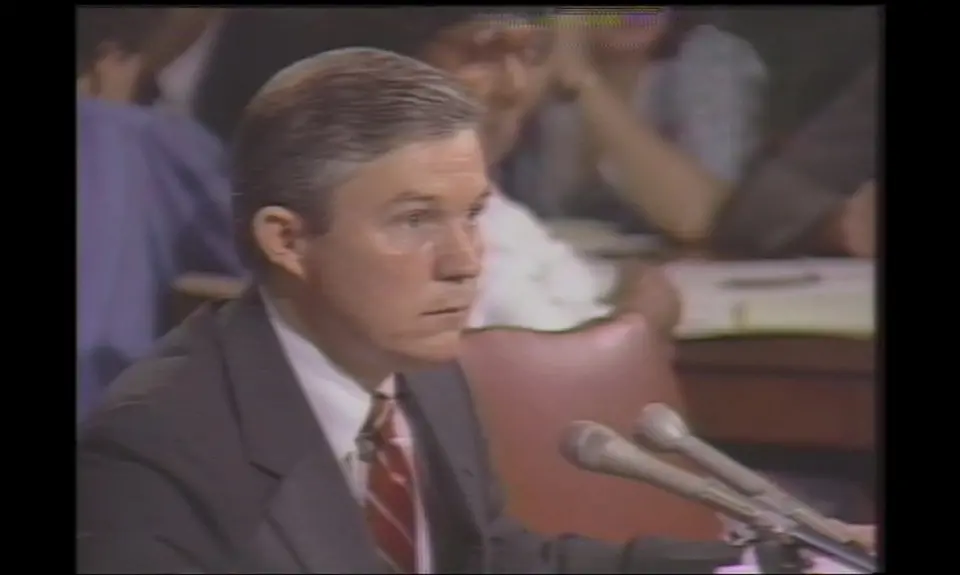When Jeff Sessions was nominated to a federal judgeship in 1986, the late civil rights activist Coretta Scott King was among those who opposed his confirmation. King, the widow of Martin Luther King Jr., sent senators a nine-page statement opposing Sessions’ confirmation as a federal judge. Sen. Strom Thurmond, who chaired the Judiciary Committee at the time, kept the letter out of the public record. And, as the Washington Post has noted, “The current Senate Judiciary Committee Chairman, Charles E. Grassley (R-Iowa), has not previously released the letter, which committee rules grant him the sole authority to reveal.”
Now that the statement and a cover letter from Coretta Scott King has been published by the Washington Post, it is easy to see why Republicans kept it out of the public eye for so long.
In the short cover letter to her longer statement, King wrote:
Anyone who has used the power of his office as United States Attorney to intimidate and chill the free exercise of the ballot by citizens should not be elevated to our courts. Mr. Sessions has used the awesome powers of his office in a shabby attempt to intimidate and frighten elderly black voters. For this reprehensible conduct, he should not be rewarded with a federal judgeship.
In the statement, King explained that the organization whose activists were targeted for prosecution by Sessions was created as an outgrowth of voting rights efforts in Selma and neighboring Perry County in the 1960s. Sessions continues to defend that effort; as PFAW’s Marge Baker noted in a statement on the first day of Sessions’ confirmation hearing, Sessions “brushed off the allegations of racism and Republicans and Democrats alike determined were credible in 1986, and he doubled down on his unsuccessful prosecution of voting rights activists.”
Coretta Scott King noted that while the Voting Rights Act led to real progress, Blacks still fell “far short of having equal participation in the electoral process.” She continued:
It has been a long up-hill struggle to keep alive the vital legislation that protects the most fundamental right to vote. A person who has exhibited so much hostility to the enforcement of those laws, and thus, to the exercise of those rights by Black people should not be elevated to the federal bench.
The irony of Mr. Sessions’ nomination is that, if confirmed, he will be given life tenure for doing with a federal prosecution what the local sheriffs accomplished twenty years ago with clubs and cattle prods.
Among the witnesses testifying this week against Sessions’ confirmation as U.S. attorney general was one of MLK’s closest colleagues, Rep. John Lewis, who suffered a skull fracture on “Bloody Sunday” when voting rights marchers were violently attacked in Selma, Alabama.
